The uncompromising egotism that tore the Yes campaign apart
Shireen Morris’s account of the failed Indigenous referendum is a melange of self-justification, ‘We was robbed’ rhetoric, conspiracy theories and just downright hate. I happen to be one of the ‘villains’ she particularly – and at great length – reviles.
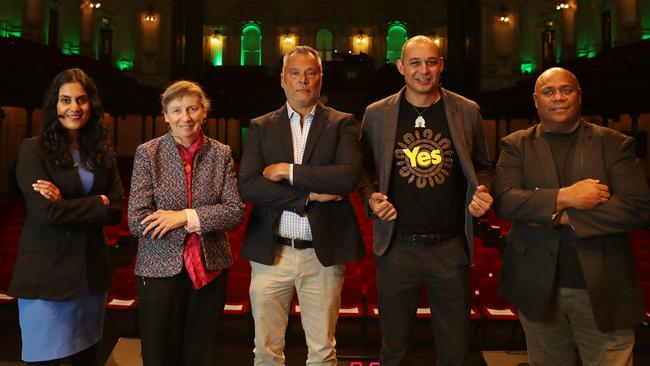
Broken Heart by voice referendum bit-player Shireen Morris falls into the same wearisome category. Its account of the failed referendum is a melange of self-justification, “We was robbed” rhetoric, conspiracy theories and just downright hate.
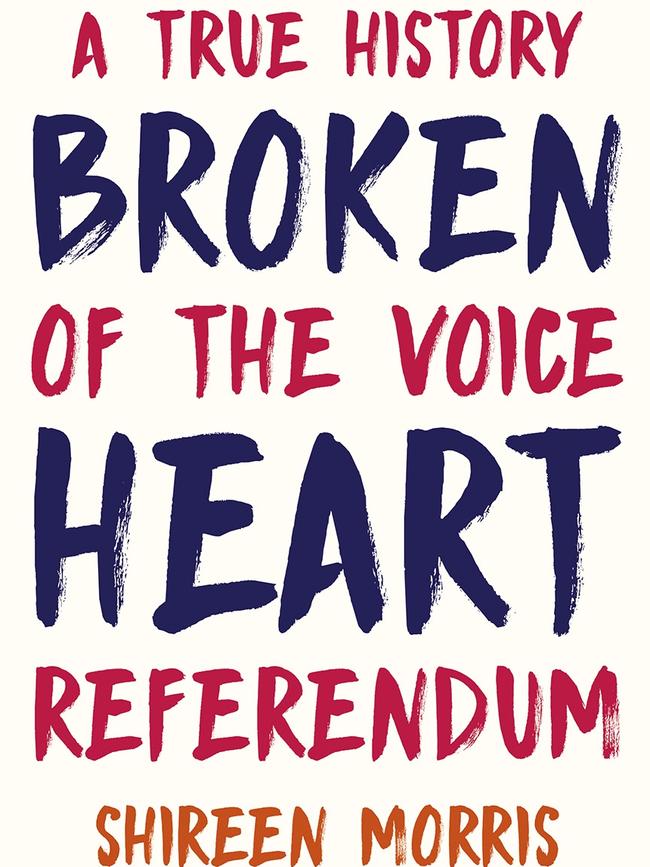

Hate is central. Morris reviles anyone who did not support the voice formulation word by word and without question. Peter Dutton presents as a deceptive troglodyte. Nationals leader David Littleproud is a backsliding reactionary.
But the people she really detests are the so-called Con Cons – constitutional conservatives – who devised the modest original version of the voice alongside Indigenous leader Noel Pearson.
The sin of the Con Cons was subsequently to critique the official referendum draft. Morris accuses them of betrayal, dishonesty, political tribalism, conspiracy, deception and stupidity.
She particularly and at great length reviles Jesuit constitutional lawyer Frank Brennan and me. Apparently we are a two-man team who cynically dynamited the voice from within and continue to control a negative public debate.
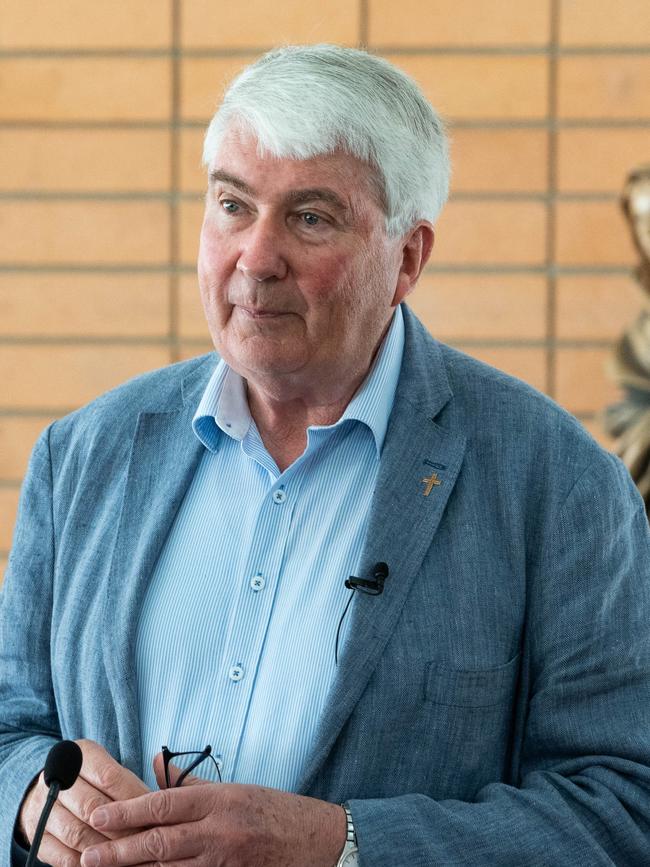
Brennan gets a genuinely bigoted descriptor as “Black Robe”, a derisive reference to his status as a Jesuit priest. I alternate between an evil genius and a slobbering idiot. Apparently, at 66 I am “well into old age”. Oh well. My children would agree.
This is where the most eccentric of Morris’s many conspiracy theories emerges. Brennan and Craven led a Catholic conspiracy to nobble church support for the referendum. Ordinary Catholics were browbeaten by Brennan’s status as a priest. There are thousands of Catholic priests in Australia. On the odd occasion Brennan and I actually agree with each other, we would be lucky to shift our bishops with dynamite.
But for every set of villains, there has to be a hero. It is not surprising that the hero of the referendum for Morris, a failed Labor political candidate, is the Albanese government. Its conduct was white as laundered snow.
Her central claim is that Anthony Albanese always was winsomely open to compromise. It was the evil Coalition that refused to play ball. This is as much against the evidence as extraterrestrial construction of the pyramids.
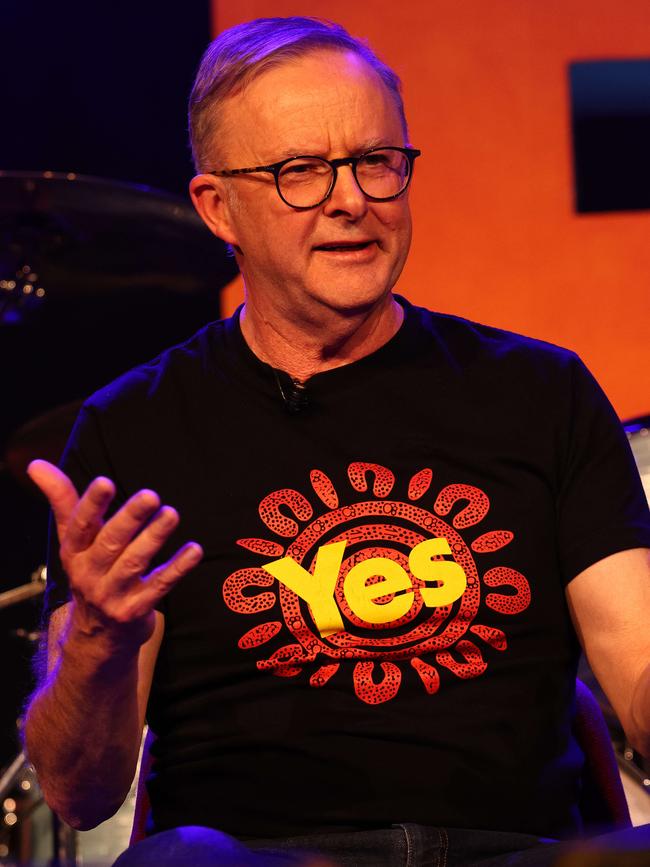
Albanese unswervingly committed to his referendum on election night. Then, he unilaterally announced words he said were open to change but never were. When the Opposition Leader and opposition Indigenous Australians spokesman Julian Leeser were summoned to Albanese’s office, there were lectures, not discussion.
Morris must be one of the last people not to realise that the referendum was Albanese’s own personality cult. He would have a constitutional triumph, without concessions or the need for bipartisan support.
The other champions of compromise for Morris were the Indigenous leaders. Apparently they were always ready to accommodate concerns or critiques, and Morris lists numerous implausible cases where they generously accommodated their contradictors.
This is fantasy. The one real concession was before the referendum debate began, when the Indigenous leadership abandoned demands for a racial equality clause in the Constitution. But this was defeat, not compromise. Their proposal had been shredded beyond rescue in public discourse.
During the referendum itself, myriad Indigenous “working groups”, dominated by ideologically driven activists, ensured the words going to referendum were materially unchanged from those that came from Albanes’s mouth. They were enforcers, not enablers.
For someone so ready to hurl allegations of dishonesty and hypocrisy, Morris is temperamentally and ideologically unable to discern the great con in formulating the referendum proposal. It was dictation disguised as discussion. There was never going to be a compromise.
Mind you, there were others who remained hopeful well after integrity had left the building. Particularly, the Con Cons kept trying to amend the words into constitutional respectability before a slow realisation that, however noble their motives, the entire process was pointless.
One of the few redeeming features of Morris’s book is unconsciously to reveal the iron bond of will between Albanese and Indigenous leaders such as Pearson, Megan Davis and Pat Anderson. For all her palaver of compromise, Morris shows an impervious ideological fortress. Today, in retrospect, most Con Cons realise the official task allotted to them was not to make suggestions, let alone publicly prosecute them. We were a chorus to stand behind the referendum’s leaders, smile and be grovellingly supportive. For ideologues such as Morris, our refusal to do so was heinous.
Ironically, even today, it is impossible to work out the chain of secretive events that led to the words of the Albanese amendment. Broken Heart offers little assistance, for all its claim to be a “true history” committed to compromise.
Instead, there is a bewildering cast of quarrelling Indigenous leaders, Albanese staffers, legal facilitators, co-operative constitutional advisers and selected senior judges. Morris presents this as a vibrant exchange of ideas and much vaunted compromise, but it all happened behind carefully locked doors.
To this day, even if you have managed to plough through the simultaneously vicious but sentimental prose of Broken Heart, you are still bemused. The best bet seems to be that various possibilities devised by different Indigenous leaders such as Pearson and Davis were internally workshopped and amended, whisked around a few judges and legal trusties by constitutional impresario and Labor lawyer Danny Gilbert, and then adopted by Albanese as a decisively finished product.
This produced the fatal draft giving the voice the right to make “representations” to the executive. With its dangers of judicial intervention, it not only delighted outright opponents as a veritable suicide run but also appalled the Con Cons.
The argument by Morris is that all this outrage by previously supportive constitutional conservatives was confected out of political tribalism. Engagement with the executive government had always been part of the proposal, so what was the fuss?
But Morris fudges the key point that the original drafts had been very different from the Albanese product. They provided for “advice”, not “representations”, with their judicial administrative law implications. They also included requirements for tabling advice in parliament, reinforcing the fact that this was very much a process for the legislature, not the courts.

Morris simply refuses to get this. She averts her eyes to the fact that, before Albanese’s announcement of his words, the formulation of the proposal was still in a state of flux. In reality, there was no fixed set of words from which the treacherous Con Cons could split, the essential plank of her conspiracy platform.
This explains the unfeigned horror of the Con Cons over the notion of “representations” to the executive. Of course, they had expected conversations of some type between the executive and the voice to be included in the draft, but not a potentially legally enforceable dialogue.
Consequently, the disaster of division for the voice was the direct result of a decision to eschew the asserted compromise of Morris in favour of a secret deal fostered by Albanese and his Indigenous allies.
In essence, Broken Heart is an attempt to dress up this constitutional bastardry as compromise and condemn anyone who opposed it as an ego-driven reactionary.
My own moment of truth came when Pearson rang me to deliver one of his legendary obscene sprays, this time for having dared to criticise “the words”. I short-circuited him. “Noel,” I told him, “This is your doing. You locked all of us (the Cons Cons) out of the drafting room. You did it because you knew we wouldn’t agree to this proposal. This is your mess and your fault. When the thing goes down, it will be all down to you.”
There was an uncharacteristic silence followed by an uncertain: “Oh well, we will have to keep talking”, before he rang off.
This is the reality of Morris’s fulminations over the failure of conservatives to compromise. Refusal to discuss, followed by secret decision, followed by rage at any deviation, followed by a catastrophically lost referendum.
One of the oddest things about Broken Heart is its inability to present any convincing scurrilous reason for the Con Cons’ refusal to give uncritical support to the Labor draft. The best suggestion Morris can proffer is “political tribalism”.
But Brennan, for example, is a man of the left, and I have fought conservative governments over everything from federalism to industrial relations.
The one thing Morris cannot see is principle. Why would conservatives volunteer to cross their own friends with predictable consequences? Fundamentally, why would Leeser give up his position in the shadow cabinet out of tribal loyalty? Much more trivially, why would I make myself a target for so many readers of this very newspaper if I wanted to win a conservative beauty contest?
A real problem for Morris in accurately seeing the motives of friends and enemies alike is her personal disappointment, not just with the referendum result but also with her own role in the process. Morris was not in the secret meetings. Her opinion was not particularly sought. She was the Dannii Minogue of the referendum.
This must contribute to her rage and conspiracy bias. It certainly underlies some quite bizarre progressive explanations for her own relative unimportance.
She accuses Con Cons of ignoring her central role because she is a woman. She even complains that some Indigenous voice proponents made difficulties for her because she was a woman of colour but not Aboriginal.
In essence, Broken Heart is an instructive example of the sort of uncompromising egotism that tore the Yes campaign apart. Albanese, Pearson and Davis all claimed to be channelling Indigenous hopes.
The most remarkable thing about Broken Heart is that the heart in question does not seem to be that of Australia’s Indigenous people. It is Morris’s own progressive heart, shattered by defeated expectation and loathing for opponents.
Greg Craven is a constitutional lawyer and former vice-chancellor of the Australian Catholic University.



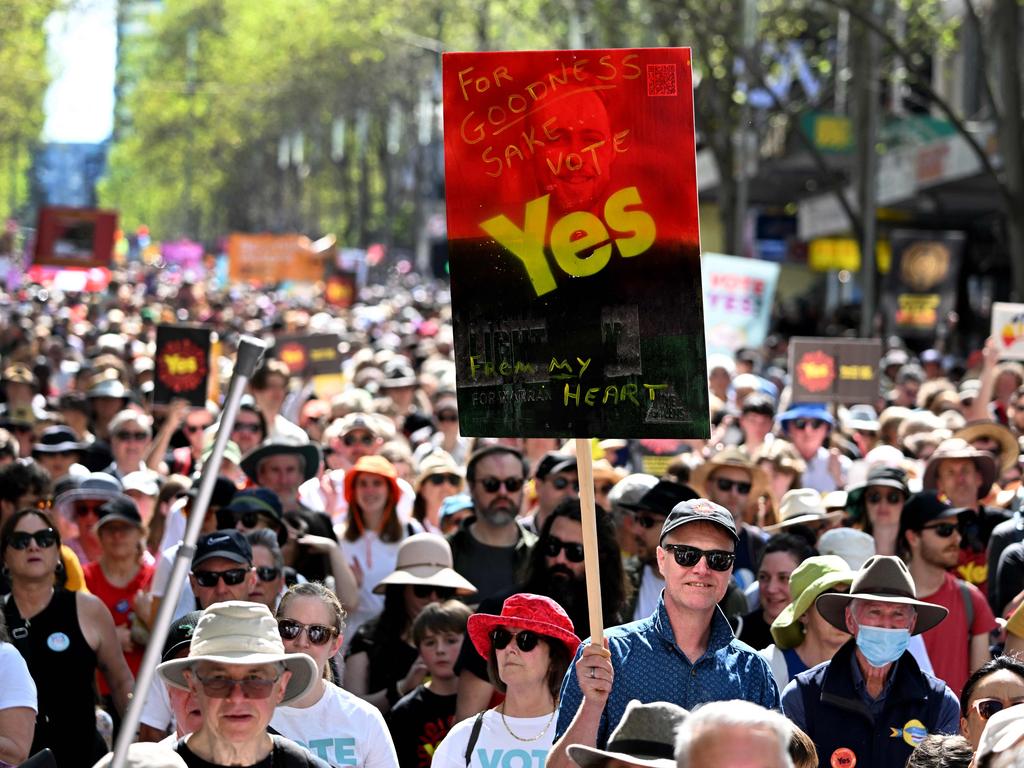
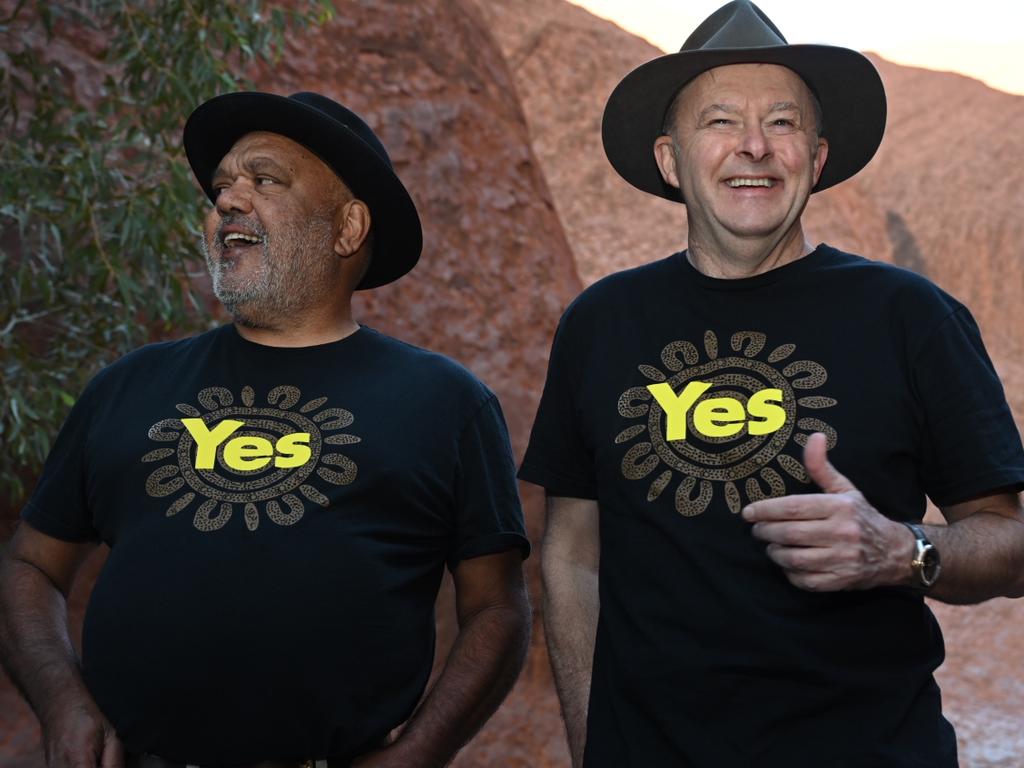
Every conflict spawns self-serving accounts by protagonists. Caesar’s Commentaries were a job application to be emperor. Napoleon penned a nauseatingly hagiographic autobiography. Winston Churchill wrote an entire library congratulating himself.